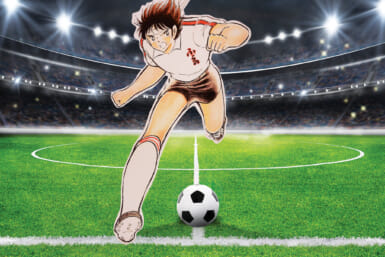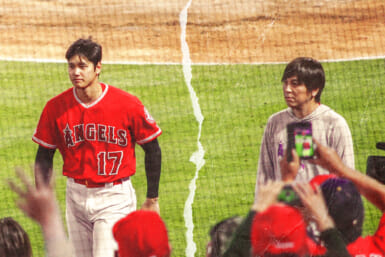Japan’s professional football league said they were probing an apparent discrimination incident after a banner bearing the words “Japanese only” was put up during a weekend match at Saitama Stadium.
The large banner, written in English, was hoisted near a gate to the stands of the stadium during the Urawa Reds home opener against rivals Sagan Tosu.
Speculations had been circulating online that the banner was targeting striker Tadanari Lee, who was released by English club Southampton for a transfer to Urawa before the J-League season kicked off this month. Lee is of South Korean descent and holds Japanese citizenship.
The sign was reportedly spotted at halftime in a concourse for an entrance gate to seating for home fans but officials were unable to see who had placed it there. The banner was removed about an hour later.
Urawa said it was questioning an unspecified number of people who were behind the “racist” sign and is considering taking punitive measures against the individuals.
“We are truly sorry about the incident, and we extend our deep apologies,” an Urawa Reds official said.
Team officials said the banner could be construed as a xenophobic message against the entry of non-Japanese to the Saitama Stadium, a venue for the 2012 World Cup. Some have said it could be criticism against—or a simple referral to—the fact that all Urawa Reds on the bench at the start of the match were Japanese.
Urawa is managed by Austrian Mihailo Petrovic and has Brazilian Marcio Richardes as one of its midfielders. Sagan’s manager and coach are both South Koreans, as are several players.
Mitsuru Murai, chairman of the Japan Professional Football League, organizer of J-League events, said he has called on Urawa President Keizo Fuchita to thoroughly confirm the facts of the incident.
Urawa defender Tomoaki Makino expressed his disappointment over the incident after his team’s 1-0 loss on Saturday.
“This is not the way to treat players who fight for this team with pride,” Makino said on Twitter.
“Players and supporters cannot unite as one and produce results this way,” he wrote.
By Maesie Bertumen
Image: Sebra / Shutterstock.com









